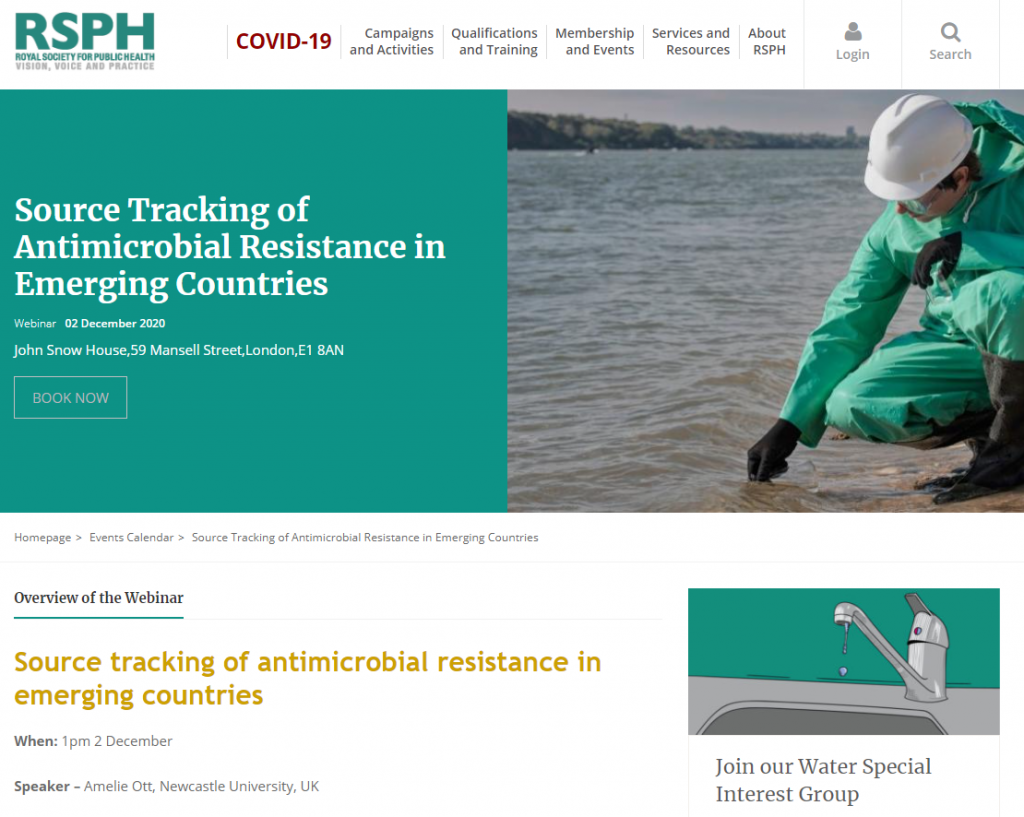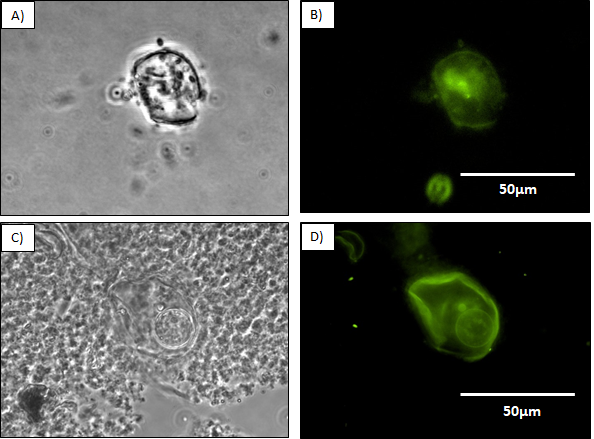In just a 4-minute read, this piece showcases the impact of our research. Discover how other’s at Newcastle University address the pressing needs of society on a grand scale by visiting: https://www.ncl.ac.uk/research/impact/.
Tag Archives: antibiotic resistance
Heavy metal pollution can increase antibiotic resistance in rivers
We want to publicise a recent publication in the journal Environmental Pollution on research by Newcastle University and the Indian Institute of Technology, Delhi that quantified antibiotic and metal resistance in sediments from the Ganges and Yamuna Rivers in India and streams in the River Tyne catchment. The results show heavy metals, which are high in the River Tyne catchment due to historic mining and industrial activity, relate to antibiotic resistance levels in the river. The same was seen in the Indian rivers, especially in areas of industrial activity. See the Newcastle University Press Release on this work here.
Professor Graham introduced the environmental dimensions of antibiotic resistance at the Annual Meeting of the Members of the European Parliament (MEP) Interest Group on AMR on 17 May 2022.
Source tracking of antimicrobial resistance in emerging countries
Amelie Ott recently gave a webinar for the Royal Society of Public Health (RSPH) on ‘Source tracking of antimicrobial resistance in emerging countries’ with over 200 stakeholders registered for this event. Amelie talked about environmental antibiotic resistance in low-and-middle-income countries with a special focus on monitoring and modelling antibiotic resistance in South East Asian rivers. Amelie was invited to give this webinar after winning the student competition at the RSPH ‘What is the future of water in public health?’ conference in Sheffield, December 2019.

New ES&T Publication: Impact of redox conditions on antibiotic resistance conjugative gene transfer frequency and plasmid fate in wastewater ecosystems
We are happy to present our new publication in Environmental Science & Technology. This paper is from Mui-Choo (Florence) Jong’s PhD research on antibiotic resistance (AR) gene transfer in low-energy sponge bioreactors. Florence showed sequential redox conditions generally enhanced AR gene removal, but she also observed very different gene transfer frequencies under different conditions. To test this observation, she developed a reporter assay using a green-fluorescent-protein tagged E. coli to track conjugative AR plasmid fate; the survival of the E. coli host cells; and gene exchange activity in aerobic, anoxic and anaerobic bioreactors, both in biofilms and the liquid phase. Overall, her work, reported in ES&T, show that aerobic conditions are better at reducing AR levels and gene transfer in wastewater ecosystems, perhaps due to the reduced host survival and in situ predation. This has major practical implications to wastewater treatment process design.

Alumni Day talk online: Fighting the Next Pandemic: Water quality, antimicrobial resistance and global health
David Graham recently provided the 2020 Newcastle University Alumni Day lecture and it is now available online (in case you missed it). The talk called “Fighting the Next Pandemic: Water quality, antimicrobial resistance and global health” is available here or see it below. It addresses links between water quality and the spread of resistant infectious disease – which could potentially lead to the next pandemic. Parallels and lessons between antibiotic resistance and Covid-19 are discussed.
Congratulations Dr Panagiota Adamou
It is official, Pani was been awarded her doctorate in Environmental Engineering. Her dissertation title is Assessing treatment technologies for reducing antibiotic resistant gene abundance and diversity in domestic wastewater treatment effluents. Well done Pani!!

Finalist for the THE Awards 2020
Happy to announce our research has been short-listed in the STEM Project of the Year category for the THE Awards (Times Higher Education). Engineering a halt to the ‘superbug’ highlights our research on relationships among environmental pollution, inadequate sanitation, and antibiotic resistance around world. Impact story is described here. Winner announcement on 26 November 2020.

Tackling antimicrobial resistance spread in India’s waterways
We are excited to be part of the India-UK team investigating the release of antibiotics in India’s waterways. This project fits nicely in our portfolio of ARM research projects. You can read about it in the Newcastle University Press Release or these sources: Hindustan Times, The Times of India, Deccan Herald, India Education Diary, The Times of Bengal, The Week, and India Inc.
Environmental factors in the spread of drug resistance
Today David Graham and Peter Collignon released an Insights piece called Scientists around the world are already fighting the next pandemic in The Conversation. A shorter version entitled Access to clean water may be as vital as cutting antibiotic use in the fight against superbugs also was published in The Telegraph. Both articles discuss the importance of environmental factors in the spread of antibiotic resistance, especially in the developing world.
These articles comment on the just-published Technical Brief on antimicrobial resistance from the World Health Organization; Food and Agriculture Organization; and World Organization for Animal Health. The brief provides recommendations on the implementation of water, sanitation, and hygiene (WASH), and wastewater management as strategy for preventing infections and reduce the spread of antimicrobial resistance around the world. David was a contributing author on the Brief.
First virtual conference attendance
PhD researcher Amelie Ott attended her first virtual conference this May. Due to COVID-19, the Society of Environmental Toxicology and Chemistry (SETAC) Europe 30th Annual Meeting Open Science for Enhanced Global Environmental Protection was moved within a few weeks from a face-to-face meeting in Dublin, Ireland to a virtual conference (3-7 May 2020).
Conference attendees were able to watch all platform and poster presentations on demand with the opportunity to ask their questions to the presenters in a chat box. Each session had a live Zoom Q&A to allow for more in depth discussions between presenters and conference attendees.
Even though that Amelie missed the networking opportunities while enjoying a pint of Guinness after a long conference day, she was impressed by the well organised virtual conference experience and the opportunity to easily watch relevant presentations (rather than having to run switching rooms between parallel sessions). The photo below shows the virtual conference “entry hall”.
Amelie gave two pre-recorded platform presentations at SETAC, one on her PhD project talking about “Monitoring and modelling antibiotic resistance in a Southeast Asian river catchment” and the other one on a previous research project on “Multi-laboratory validation of a new marine biodegradation test for persistence screening”.
Amelie’s registration fee was covered by the Federation of European Microbiological Societies (FEMS) Meeting Attendance Grant.

